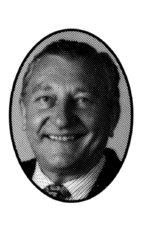Forgive me, Mr. Speaker. It was an oversight. I meant the Prime Minister.
In any event I ask the Prime Minister and the government if they have not learned anything from the past. It is clear that the Prime Minister has not. He is determined to allow history to repeat itself. Following his speech yesterday on the other half of this initiative, the hon. member for Beaver River was moved to say it was like listening to former Prime Minister Mulroney defend the Charlottetown accord.
In addition to telling the past, history also affords us the ability to gaze tentatively into the future. That is why when I look at the bill I see past failures along exactly the same lines as those being proposed here.
The bill seeks to implement an amending formula similar to that contained in the Victoria charter of 1971. However, just as insulting to Canadians, the formula was rejected at the time by provincial premiers. The initiative before us does not take into account the realities of today's Canada, that the people of the country want a final say in how their Constitution is amended through referendum. They do not want the process controlled from beginning to end by the political elites of the country. That much should have been learned by the government following the Charlottetown accord.
The bill would certainly place a constitutional straitjacket on any certain constitutional changes, no matter how desirous they might be. The bill would allow the federal government to withdraw its support for any proposed change if either the premier of Ontario or the premier of Quebec did not like it.
In addition, as this bill would not be part of Canada's Constitution so far, the old amending formula would apply as well. The combined effect of this situation means some bizarre form of double jeopardy would apply to proposed constitutional amendments. That is not good.
Beyond that, this bill would not be acceptable to many Canadians because it gives the separatist Government of Quebec a veto over the Canadian Constitution. I ask that the members on the government side think about the consequences of that action for a moment. A separatist government would now be handed a de facto veto over the Constitution of a country it has decided to break apart. Has the Prime Minister thought about the consequences of such an action?
From a personal perspective as a representative from the province of British Columbia, I am offended by this bill. Implicit in it is the notion that British Columbians are relegated to second class status in Confederation. I would also remind members across the way that along with Alberta and Ontario, B.C. is one of the three net contributors to Confederation. All that this legislation serves to do is perpetuate the mindset within the federal government that B.C. and the west is a colony.
When I was a boy in Vancouver some 50 or 60 years ago, I was conscious of a separatist movement within British Columbia at that time. It came about because it was resentful of the treatment accorded the west by central Canadian interests. It seems to me that precious little has changed since then, despite the fact that B.C. is now the third most populous province.
I have a warning for the government across the way. Proposals such as Bill C-110 before us are sure to rekindle the separatist fire in the west. That is something we do not want to have happen.
In concluding, I tell members now and inform the House that as a loyal Canadian, I will be voting against this bill every step of the way.
I further encourage members opposite to join with me and do the same if they think about the constitutional consequences of this bill for Canada, if they believe in their heart of hearts that the people of this country, not the governments, are the ones who know what is in their best interests. If they understand the lessons that 30 years of constitutional bickering have taught us, if they truly understand all those things, then they must vote against this bill. To do otherwise is an affront to all Canadians.

